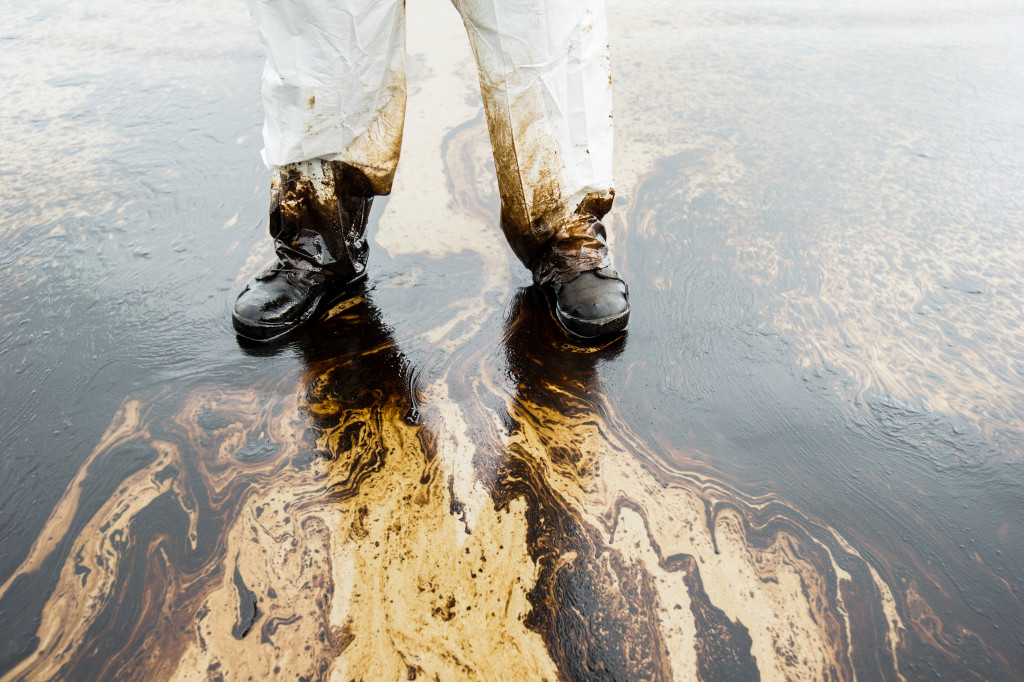- Oil companies face significant risks of oil spills, with substantial environmental, legal, and financial implications.
- Oil spills lead to lawsuits, costly clean-up efforts, revenue loss, reputation damage, and regulatory compliance issues.
- The Deepwater Horizon spill 2010 is an example of an oil spill’s catastrophic impact on an oil company.
- Preventive measures such as pipeline clean-up, equipment maintenance, spill prevention, and regulatory compliance can reduce oil spill risks.
- Proactive investment in these measures can safeguard a company’s reputation, environmental compliance, and financial health.
Oil companies are responsible for the production, development, and distribution of some of the most valuable natural resources in the world. They are big businesses with huge profits and are tasked with ensuring safe and effective oil transport from one place to another. However, with oil transportation come numerous risks for oil spills, and when these spills occur, the impact on oil companies can be catastrophic. Here’s what you need to know about oil spills in the U.S., how they can affect your oil company, and how to prevent them.
Oil Spills in The U.S.
It’s estimated that there were ten major oil spills in the country. One of the most devastating oil spills occurred in the Gulf of Mexico in 2010 when an offshore drilling rig exploded and caused a massive leak. This spill affected the environment, wildlife, tourism, and the local economy. Other major oil spills have included those from pipelines, such as Alaska’s 1989 Exxon Valdez spill and a 1995 rupture of an underground pipeline near Chicago that spilled over 1 million gallons of crude oil.
How Oil Spills Affect Your Business
Oil spills can be costly for companies to clean up and often have long-term consequences. Here’s what you need to know about that:

1. Lawsuits and Legal Action
One of the most severe consequences of an oil spill is lawsuits, which can pile up quickly. Oil companies can face lawsuits for punitive damages, the cleanup of the disaster, and compensation for affected individuals and communities. The legal actions against BP in the aftermath of the Deepwater Horizon spill 2010 are an example of the potential financial implications. Over 6000 claims were filed against BP, and the company’s ultimate cost for the spill is projected to be more than $17 billion.
2. Reputation Damage
Oil spills can also cause significant damage to the reputation of an oil company. The public sees spills as a sign that the company cannot be trusted to operate safely and effectively. The damage to the reputation is long-lasting, and it could take years for the company to recover. In the same way, the BP oil spill impacted the company’s ability to sell gasoline and other products in the US. Any oil-spilling company could experience a similar fate.
3. Environmental Impact
Oil spills have a significant environmental impact, which can lead to expensive cleanup efforts. These efforts are particularly challenging once the oil reaches the ocean, as the movement of tides and winds can spread the oil over a vast area, making it difficult to clean up. An oil spill, including sea creatures and plant vegetation, may significantly harm nature. The damage can take years to correct and can attract public attention that indefinitely damages the oil company’s reputation.
4. Revenue Loss
Oil spills can cause significant revenue loss for oil companies. This is due to the better part of the company’s operations, including production and exploration, coming from offshore rigs that can be destroyed in oil spill events. An oil company is prone to being shut down by imposing penalties and suspending operations until corrective action is taken. This ultimately leads to lost profits and an inability to sell the product to OEMs and transportation companies.
5. Regulatory Compliance
Oil companies face strict regulatory compliance when hauling and storing, and any lack of compliance invites fines from the relevant authorities. Failure to comply with the regulations can lead to fines, including suspension of operations and other penalties, which results in competitive disadvantages and barriers to future business growth.
How to Prevent Oil Spills
Thankfully, your business can prevent oil spills. Here are four effective ways:

Pipeline Cleanup
A dirty and unmaintained pipeline can rapidly release crude oil, leading to an environmental disaster. This is why it’s so essential to keep pipelines clean and well-maintained. Regularly cleaning the insides of the pipelines with interior coating technology can help minimize corrosion and increase their lifespan significantly. An intelligent pigging service can do this for you. Pigging is a preventive maintenance technique that uses a particular pig device to clean and inspect pipelines.
Spill Prevention
Spill prevention is essential for avoiding potential disasters. It requires constant monitoring of equipment and facilities to identify any signs of failure before it happens. To do this, you should use reliable pressure sensors, temperature monitors, corrosion detectors, and other equipment that can alert you of any potential problems.
Equipment Maintenance
Regular maintenance of all the equipment used in the oil and gas industry is essential for avoiding spills. All parts should be inspected regularly to ensure they are in good condition and functioning correctly. This includes valves, pumps, flanges, hoses, pipes, and tanks. Also, make sure to use quality materials when replacing worn-out parts.
Regulatory Compliance
Adhering to regulations is also to prevent oil. Make your company is up-to-date on the latest regulations and that you follow them closely. This includes environmental regulations, safety standards, and local requirements in your operating areas. Also, ensure all employees are aware of and abide by the regulations.
By taking preventive measures, oil companies can help protect their business and reduce the risk of a devastating oil spill event. It’s worth investing in these measures to ensure your company does all it can to maintain safety and environmental compliance.

